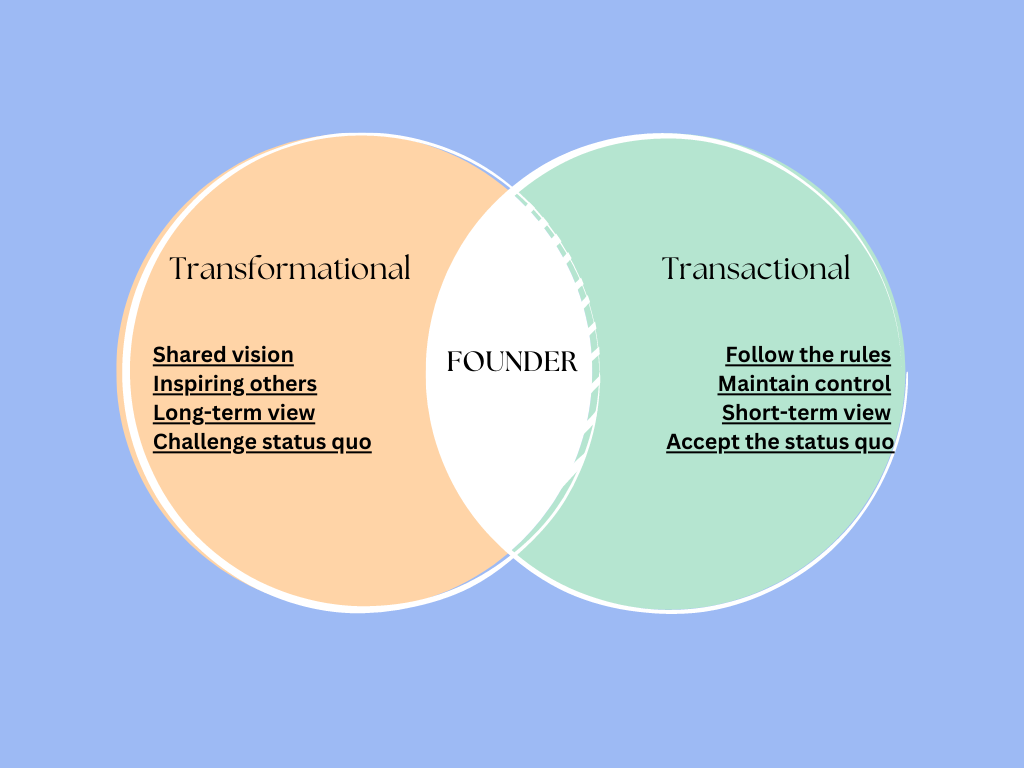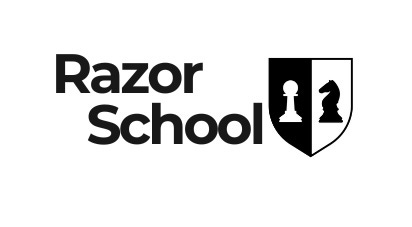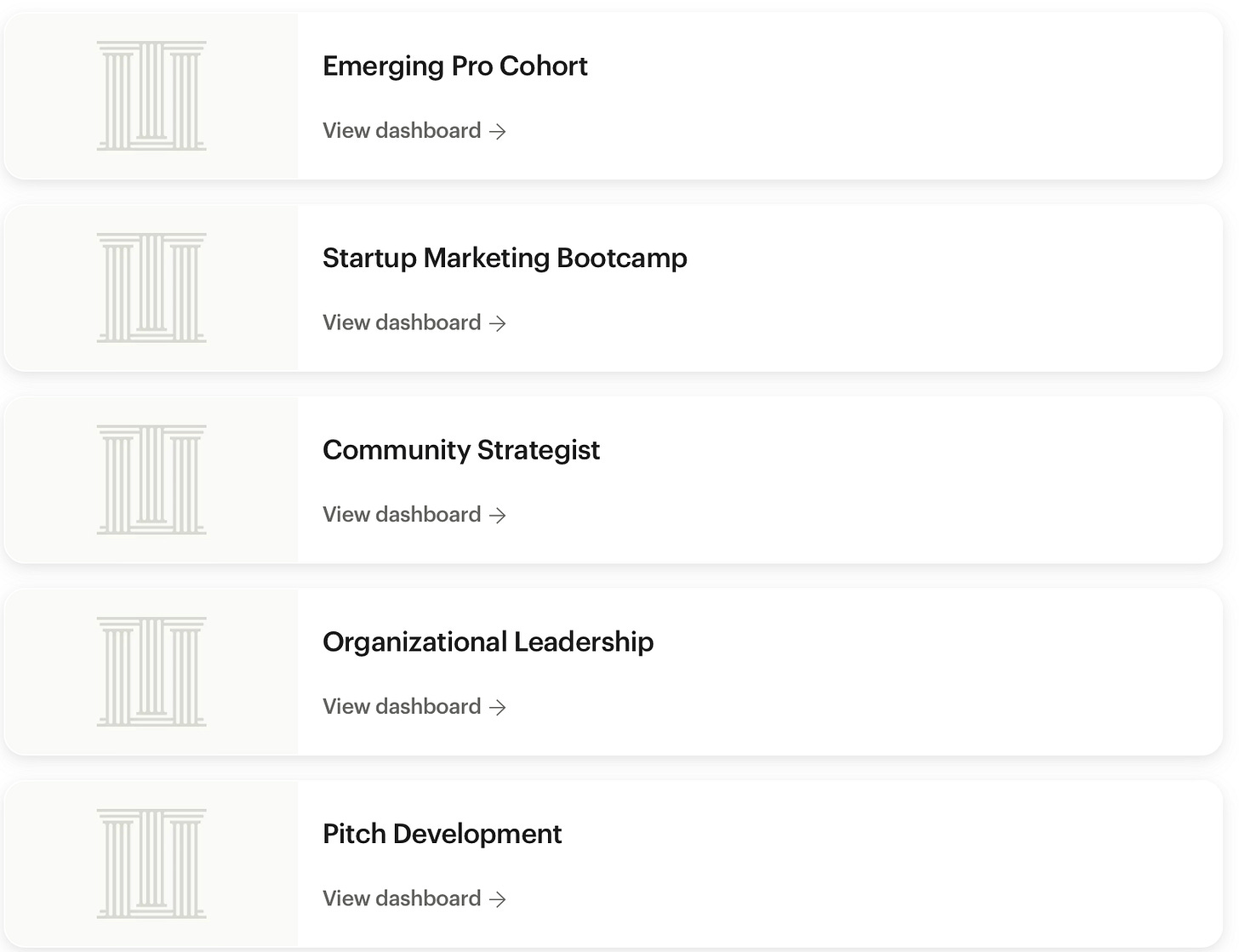4th Edition
This is the fourth edition of SpaceFold a newsletter with resources, best practices, and thought leadership to help the journey of founders and emerging professionals.
Welcome
It's me, Julius Alejandro, your residential entrepreneur, strategist, and educator, and I decided to start a bi-weekly newsletter called SpaceFold. What's the meaning behind the name, SpaceFold? I'm a big sci-fi nerd! It comes from the faster-than-light travel you watch in sci-fi shows. For example, traveling from Earth to Mars would take about seven months. Theoretically, you can fold closer the literal space between Earth and Mars so that it would take a second or less.
Startup Founders
What Should You Wear: Velvet Glove/Iron Hand?
As you lead a team, if you're a solo founder, prepare for the inevitable of having a team. It's essential to distinguish between leadership and management.
While "leadership" and "management" are frequently used synonymously, they represent distinct roles within a company. Understanding their differences can help you navigate the complexities of running a startup and foster a balance between them.
Leadership is the art of inspiring and guiding a team toward a shared vision. It involves setting a clear direction, motivating and empowering employees that foster a culture of innovation and growth. Leaders focus on the big picture, influencing the organization's strategic decisions and long-term objectives.
In contrast, management is the science of planning, organizing, systems and processes, and coordinating resources to achieve tangible goals for the startup. Managers focus on defining and uniforming the process efficiently, allocating resources, and overseeing daily operations. Managers focus on maintaining stability, optimizing productivity, and delivering results.
One thing I learned from my master of science in organizational leadership is that there are no unified leadership theories. Here are two theories below, and we will get more into future newsletters.
Transformational Leadership: Focus on developing followers into leaders by fostering their individual growth and connecting them to the mission and vision.
Transactional Leadership: Focus on results and that you will be rewarded if you do certain tasks. It values structure and order.
You need both in order to be successful. You can’t be too inspirational and not put it into action. In contrast, you can’t be too rigid that it doesn’t motivate your team. You need both in a perpetual balancing act.
Future of Career
Articulate your Experience in your Resume
This is one of the biggest things I see when I review resumes. The lack of articulation is no fault of the person. Why? Because no one (to my understanding) has taught them or us how to write a resume in K-12 or college. I was fortunate to work at a social service nonprofit focused on job development. They did a one-day training with us on how to review resumes. Here is an example of an undeveloped:
Marketing Coordinator
Created social media posts about the company
Planned trade show events to display products
Assisted CEO with daily administrative tasks
Here is the formula for the bullet points for each position:
Task + Scope = Result (increase or reduce)Task: What specific activity were you responsible for? (e.g., you created something, were in charge of something)
Scope: In that specific responsibility, what is the exact thing or estimated number of something you were responsible for in order to….
Result: Because you were given the task for the thing/estimated number, you either increased sales, attendees, followers, etc., or reduced inefficiency in your company.
Here is the developed and articulated using the formula:
Marketing Coordinator
Created a marketing plan that resulted in an increase of 50% followers per platform within two weeks of launch and converted 25% into paying customers.
Conducted logistical planning and scheduling for eight trade shows in multiple states in the U.S. to increase brand awareness with an average audience of 1,000.
Provided daily administrative tasks in monitoring social media analytics and weekly report to the CEO to brainstorm on keeping content fresh and compelling.
As you can see, there is a vast difference in articulation. If you are a recent graduate, please use this formula to help you stand out.
What’s Happening…
I’m pushing back the start date of the two pilots’ virtual cohort program to late June. I’m taking the first two-weeks of June. I’m starting to feel burnout. I have juggled three responsibilities: faculty, Village Up, and consulting. Last week, I was at a coworking place, and my friend, Cassandra, approached me. She saw I was off in my demanor and wanted to find out what’s going on. I wasn’t totally self-aware at that point and was dismissive. But she told me no, I wasn’t okay, and we would get coffee and do a walk and talk. We had a heart-to-heart real talk as founders, friends, and human beings. Afterward I emailed my board of directors that I won’t be doing any Village Up matters for two weeks and let them know I’m experiencing burnout. They were completely understanding and supportive.
The grind culture is where you keep going no matter what. That “what” part is your personal welfare, not just as the entrepreneur and professional. Even when I was writing the email to my board, there was a sense of “guilt,” but I know that grind culture is bullshit because it’s negatively affecting me. It was affirming that my board acknowledged my mental health. For the two weeks in June:
Back to a consistent weekly workout routine.
Daily meditation sessions.
Schedule personal hangouts and calls with friends.
Check in with your friends. If they look “off” from their usual demeanor, reach out. Be a good human being.
Are you interested in the upcoming virtual cohort program? Fill this out, and I’ll send you details once it’s ready to launch officially.




